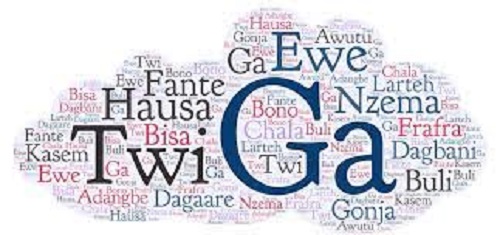
We can't afford to lose our indigenous languages
The United Nations has declared the period from 2022 to 2032 as the International Decade of Indigenous Languages.
Consequently, from this year, under the leadership of the United Nations Educational, Scientific and Cultural Organisation (UNESCO),in collaboration with the Department of Economic and Social Affairs of the secretariat, attention will be drawn to the critical loss of indigenous languages and the urgent need to preserve, revitalise and promote them.
The next decade will also see urgent steps being taken at the national and the international levels to preserve these languages.
The declaration of 2022-2022 as the decade of indigenous languages is a sequel to the resolution of the UN Permanent Forum on Indigenous Issues, as proclaimed by the UN General Assembly on December I8,2016. Subsequently, the first observance of the day was in 2019, with the aim of raising awareness of the consequences of the endangerment of indigenous languages across the world.
We note that indigenous languages are very significant for development as they define our identity, and through them, we are able to effectively express our history and culture, defend our human rights and participate in all aspects of society. Through languages, people preserve their customs and traditions, unique modes of thinking, meaning and expression.
And it is through these that a people's future is constructed. Indigenous languages also have the potential to improve the quality of life, ensure wider international cooperation and visibility and strengthen intercultural dialogue, all of which are linked to both the 2010 Agenda for Sustainable Development and the 17 Sustainable Development Goals.
In spite of the huge role indigenous languages could play in global development, about 2,687 of the 7,000 languages spoken worldwide by over 350 million indigenous peoples are in danger of extinction. Indeed, the biggest contributory factor to loss of indigenous languages was the era of colonialism when indigenous culture, including languages, was looked down upon by the colonialists, which made many beneficiaries of Western education feel uncomfortable to use their local languages.
The effects are felt up till today. In our own country, parents boast about their children's inability to speak any local language. We are rather proud to trumpet our children's proficiency in foreign languages because we think that foreign languages are more prestigious and offer social and economic advantages.
The worst is seen in our educational institutions, especially in our basic schools, where it is an offence to speak the mother tongue, with offenders receiving one form of punishment or another.
Ironically, available knowledge suggests that the early stages of school are a critical age for language acquisition and that during this critical period, language learning proceeds quickly and easily. After this period, the acquisition of grammar is difficult and for some people, never fully achieved.
The Daily Graphic is, however, gladdened that there seems to be increasing awareness of the need to deliberately put in programmes that will ensure the continuous existence of our indigenous languages.
For instance, the Greater Accra Regional House of Chiefs is currently collaborating with the Accra College of Education to train teachers who will be posted to Greater Accra to teach the Ga-Dangme language on graduation.
This came about after the house had realised that there were virtually no indigenous Ga-Dangmes who could teach the language in the region, with the few who were teaching the language being non-Ga-Dangmes. We applaud the chiefs for the initiative. Although it is long overdue, it is better late than never.
With the world commemorating this year's International Decade of Indigenous Languages today on the theme: 'Using technology for multilingual learning: Challenges and opportunities', we urge stakeholders and policymakers in language use in our country to support the revitalisation and maintenance of indigenous languages by creating more materials and content using language, information and communications technologies to get many of our citizens to learn our local languages.
We must also encourage more children, young people and adults to study those languages.
The survival and robustness of indigenous languages play a vital role in sustainable development; as such the world, and for that matter Ghana, cannot afford to postpone any longer the rolling out of initiatives to rigorously study our local languages.
